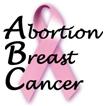Commentators on the Cover-up
What Commentators Say About the Cover-Up
Chicago Sun Times reporter, Dennis Byrne, wrote that:
"If a scientist discovered a risk factor that increases the chance of breast cancer by 30 percent, you’d have thought it would have spurred huge headlines and impassioned demands for action. With the exception of AIDS, no other health issue has been as politicized as breast cancer. Yet as scientists zero in on what one called the single most avoidable risk factor for breast cancer, barely a peep has been heard for more research, more funds or more information. That’s because the risk is abortion". 1
Los Angeles columnist, Joe Gelman, wrote this comment in the L.A.Daily News:
"So, how has the feminist establishment reacted to these findings? Stone silence or denial by some and an active campaign to discredit the findings by others. One would think that individuals and organizations committed to women’s issues, particularly health issues, would be more than eager to educate the public, and specifically its own supposed constituency about the discovery of another cause of one of the most devastating diseases to afflict women in the United States and the world over....Indeed, since the findings were published in the British Medical Association’s Journal, (hardly a bastion of right-wing, pro-life propaganda), a number of smaller studies were quickly commissioned in the United States, resorting to less scientific methods, and the feminist PR machine was set in motion in order to discredit the comprehensive study published in the British Journal." 2
Dr. Janet Daling’s comments about the politicization of science: After a November 2, 1994 editorial in the Journal of the National Cancer Institute shot down her study, she said:
"If politics gets involved in science...it will really hold back the progress that we make. I have three sisters with breast cancer, and I resent people messing with the scientific data to further their own agenda, be they pro-choice or pro-life. I would have loved to have found no association between breast cancer and abortion, but our research is rock solid, and our data is accurate. It’s not a matter of believing, it’s a matter of what is." 3
Dr. Stuart Donnan, editor-in-chief for the Journal of Epidemiology and Community Health, had this to say about Dr. Brind’s meta-analysis of the worldwide research released in 1996:
"Some readers may consider that the calculation made by Brind and colleagues of possible numbers of breast cancers following -- conceivably caused by -- induced abortion is alarmist. It is certainly true that a relative risk of only 1.3 adds up to a large absolute increase in risk with a very high prevalence of the underlying factor. However, in the light of recent unease about appropriate but open communication of risks associated with oral contraceptive pills, it will surely be agreed that open discussion of risks is vital and must include the people -- in this case the women -- concerned. I believe that if you take a view (as I do), which is often called ‘pro-choice,’ you need at the same time to have a view which might be called ‘pro-information’ without excessive paternalistic censorship (or interpretation) of the data." 4
- 1. Dennis Byrne, "Abortion, Ideology and Breast Cancer," Chicago Sun-Times, July 2, 1997, p. 33
- 2. Joe Gelman, Editorial, "Findings Linking Cancer to Abortions a Well-Kept Secret," L.A. Daily News, September 28, 1997, at V4.
- 3. Joe Gelman, Editorial, ibid
- 4. Stuart Donnan, Abortion, Breast Cancer, and Impact Factors -- in this Number and the Last, 50 J. Epidemiology & Community Health 605 (1996)

